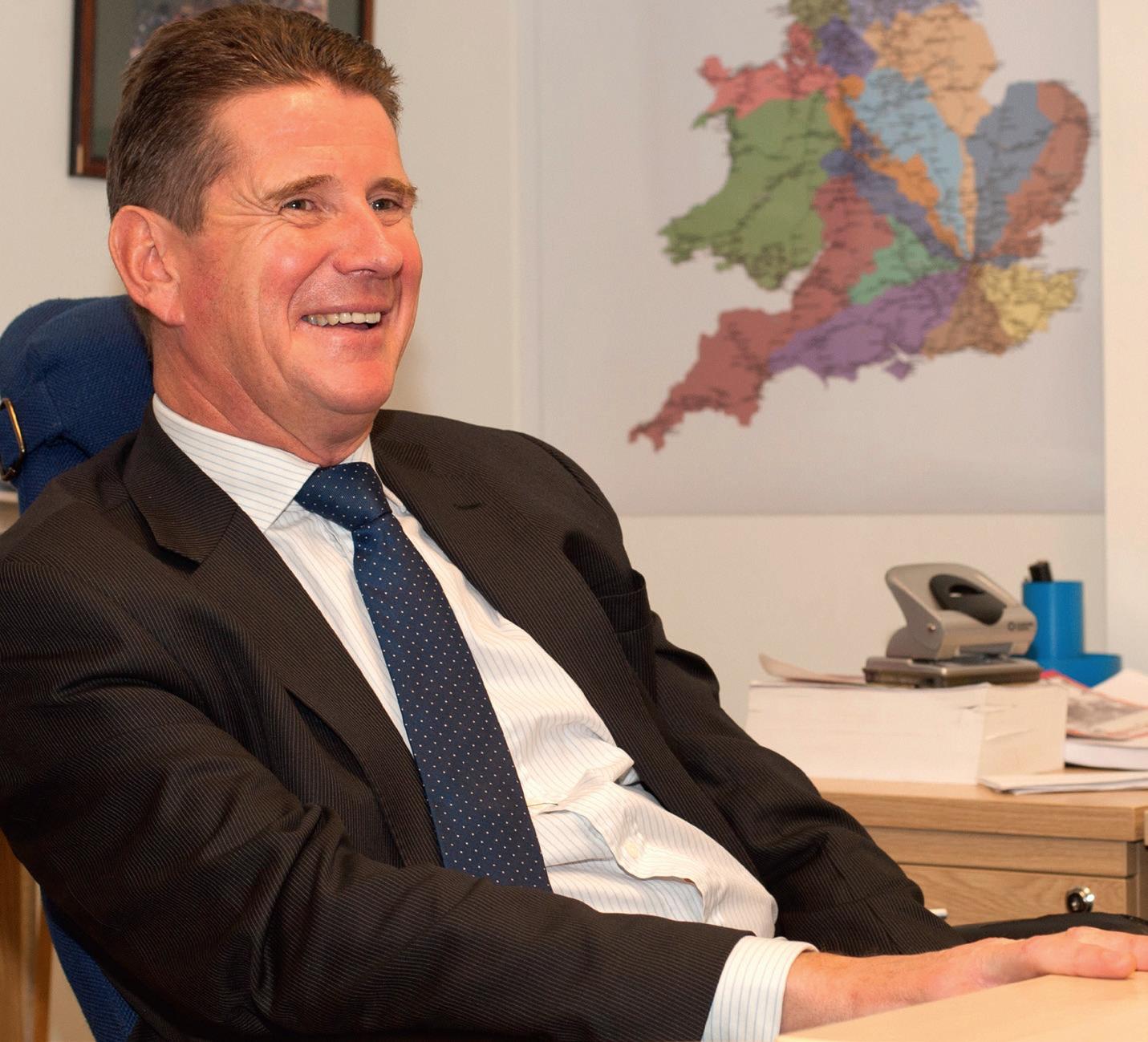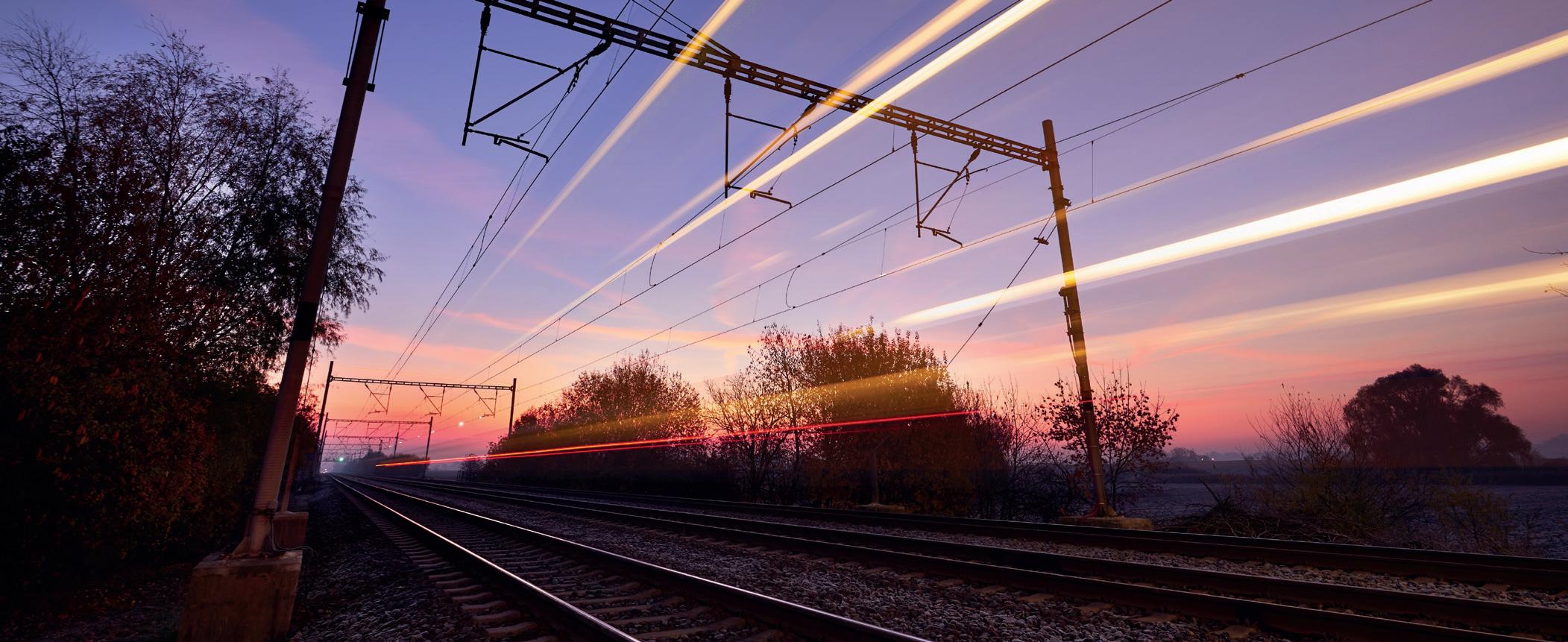
5 minute read
Sustainability
John Smith, Managing Director of GB Railfreight explores the consequences of the Williams-Shapps Plan for Rail through the lens of rail freight
The long-awaited Rail White Paper was finally published last month after a period of significant delay. It was worth waiting for and promises to be a transformational document. In setting out the future of the railways and marking the end of franchising, the Williams-Shapps Plan for Rail has set out the future of the railways and will overhaul the sector as we know it. Gone is the privatised franchise model for passenger services from the 1990s, which has – rightly – attracted the vast majority of attention paid to the Rail White Paper. But there are also big changes for the rest of the sector, including rail freight.
Firstly, we at GB Railfreight welcome the White Paper and appreciate the warm words used to describe rail freight which was correctly identified as having played a crucial role in keeping food and medical supplies moving during the pandemic as well as being key to the Government’s Build Back Better campaign.
But we should acknowledge the significant changes that lie ahead. Great British Railways (GBR), the new body that will oversee the railways going forward, will have a big job on its hands. As the Williams Review found, the rail sector lacks clear strategic direction. While we would have preferred a freight-specific guiding mind, we welcome the Government’s intent that the new Great British Railways body will have a statutory duty to promote rail freight.
As acknowledged above, much of the focus will be on passenger services, which dominates most of the media coverage and is how the general public relate to and interact with our sector. But GBR needs to be more than just a champion for passenger services. This is why we have been calling for a Freight Evangelist to champion the economic and environmental benefits that our sector brings, not just to the railways, but to the wider economy.
With the COP26 summit being held in Glasgow later this year, now is the time for the UK Government to set out its vision for a decarbonised economy. In this context, rail freight has an important part to play, and we are ready to do our bit.
We have long been calling for decarbonisation to be put at the heart of any plan for the sector, and we welcome the White Paper’s commitment to this important goal. The Williams-Shapps Plan for Rail correctly stated that Britain’s railways ‘can and will spearhead’ the UK’s ambition to become a world leader in clean and green transport, making them the ‘backbone’ of what will become a greener transport network.
But more is needed to champion the modal shift from road to rail since this is the only way to continuously reduce carbon emissions in the long term. The soon to be released Transport Decarbonisation Strategy needs to be a step change, because developing a plan to support the movement of more goods from road to rail has an important role to play in delivering the wider decarbonisation agenda. Now is the time to be bold and set out how our industry can help us reach net zero.
Luckily, the numbers are on our side. Research by GBRf has shown that transporting goods by rail emits 68 per cent less carbon emissions in comparison to road, making rail an environmentally friendly, as well as efficient, mode of transport. GBRf has calculated that when moving 100 tonnes of goods by rail from Peterborough to Glasgow – our headquarters to the host city of this year’s COP26 climate conference – just 1.26 tonnes of carbon dioxide is produced by train, compared to nearly four tonnes (3.88 tonnes) by lorry.
Rail also has an advantage in speeding up the clearance of goods being imported, or exported to and from the UK, now that Brexit requires checks on goods travelling to and from the EU. Clearance at inland
terminals and the fact that one train can carry over 70 lorry loads of goods means that using rail freight services to Europe through the Channel Tunnel is becoming an increasingly attractive way to efficiently move goods to and from the continent, as well as delivering significant benefits in reducing carbon emissions.
In 2021 we have noticed a significant uptick in companies enquiring about rail services, not only because of their efficiencies, but because rail is a sustainable mode of transport and extremely environmentally friendly. Consumers are more conscious than ever before about the impact of what they buy on the planet; they care not just about where their goods come from but how they have travelled to them. Companies are adapting to these demands by turning to more sustainable business operations.
The development of a new strategy to support an increase in the proportion of freight moved by rail would send a strong message to business and communities that the Government is serious about sustainability. Not only would it augment domestic policy, but it would cement the UK’s position as a global leader ahead of the COP negotiations in November, when our country will be playing host to one of the most significant climate summits in history.
As mentioned above, the Government is due to publish a Transport Decarbonisation Plan imminently. Much like the Rail White Paper, it needs to be a bold, transformational document to match the ambitious rhetoric coming from Government ministers. What we need now is for the Government to step up and set a firm target to ensure that the UK is on track to reach its ambitions.
This is an exciting time for the railway industry. After the biggest sector shakeup, in the form of the Williams-Shapps Plan for Rail, we now need an equally ambitious plan to decarbonise transport. As one of the fastest growing companies in the railway sector, we look forward to playing our part in helping deliver these demands and being at the forefront of the Green Industrial Revolution. As far as GB Railfreight is concerned, it’s full steam ahead to freight-zero!
John Smith is Managing Director of GB Railfreight
WEDGE GROUP GALVANIZING
Your Galvanizing Partner

RISQS approved, Wedge Group Galvanizing is the UK’s largest galvanizing organisation. With 14 plants across the UK we offer a national service, processing steel from a 1.5mm washer to 29m beam. Our plants are designed and equipped to set industry-leading standards for sustainability and low environmental impact.
E: info@wggltd.co.uk T: 01902 601944 www.wedgegalv.co.uk
ISO 9001
Quality Management










